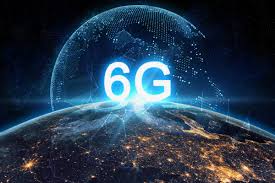Samsung joined a growing list of Asian technology companies detailing their 6G visions, releasing a white paper predicting the first commercial deployments could happen in 2028.
It expects the ITU-R to begin work on 6G in 2021, with the standard to be completed as early as 2028, opening the door to the earliest deployments, with mass commecialisation possible around 2030.
The company noted the development cycle for each new mobile generation had shortened from 15 years for 3G to eight years for 5G.
In a statement, Choi Sung-hyun, head of Samsung’s Advanced Communications Research Centre, said the path to overcoming some of the current technological challenges facing communications technologies “lies in enriching software’s capabilities and advancing AI”.
The 42-page report gives a broad overview of various aspects related to 6G, including technical and societal trends; services; requirements; and candidate technologies. Samsung predicted 6G networks will enable applications including immersive extended reality services, high-fidelity mobile holograms, and digital replicas.
Samsung aims to deliver a peak data rate of 1,000Gb/s and user speeds of 1Gb/s, noting 5G was designed to achieve a 20Gb/s peak data rate. To provide advanced multimedia services to a large number of people, it said overall network performance needs to be enhanced, with the company aiming to have double the spectral efficiency of 5G.
Performance targets include end-to-end latency of less than 1ms and extremely low-delay jitter (fluctuations in packet transfer rates) in the order of microseconds.
Essential elements include terahertz (THz) band compatability; novel antenna technologies; evolution of duplex technology and network topology; spectrum sharing; comprehensive AI, split computing; and high-precision networks.
Samsung noted it is inevitable future wireless systems will use THz bands, which offer enormous amounts of spectrum and enable extremely wideband channels with tens of GHz bandwidth. This could potentially provide a means to meet the 6G requirement of Tb/s data rates, it stated, but acknowledged a handful of fundamental and technical challenges need to be overcome.
NTT Docomo started early moves to develop 6G technology in January with a goal of a commercial launch by 2030, and in May China Unicom and ZTE signed a strategic agreement to develop 6G technologies.












